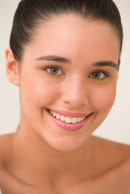Iodine | Pimples | Non-Comedogenic | P-Acnes | Blackheads | Whiteheads | Popping Pimples

P. acnes or Propionibacterium acnes
What is P. acnes?
P. acnes is the scientific name of the bacterium whose presence indicates that the patient is suffering from acne. P. acnes causes the infections that lead to inflammation, soreness, redness and swelling -- as well as comedones or pimples.
Without P. acnes, there wouldn't be acne.
How does P. acnes cause pimples?
Believe it or not, the bacterium P. acnes is a usual resident of the skin. The bacteria live in the follicle and devour sebum, which is rich in triglycerides -- P. acnes's favorite food.
When pores become blocked, sebum builds up under the surface of the skin. The relatively small colonies of P. acnes in the follicle experience a population explosion due to the abundance of food.
The bacteria are a strong inflammatory stimulus. Generally, inflammation is caused by the body's reaction to an infection -- the rush of antibodies and white blood cells to the site. P. acnes also produces destructive enzymes that cause further inflammation of the tissues. All this inflammation leads to the swelling, soreness and redness associated with comedones or pimples.
People who have severe inflammatory reactions to such things as pollen and other irritants tend to have more severe acne as well. This is because their bodies produce the same heightened levels of reaction to P. acnes as to other irritants.


How to get rid of P. acnes
Anything that kills other types of bacteria also works on P. acnes. That's why doctors prescribe antibiotics to people who have severe cases of acne. The following antibiotics are most often prescribed for acne:
- Erythromycin
- Minocycline
- Doxycycline
- Clindamycin
- Tetracycline
Topical treatments like tea tree oil and benzoyl peroxide that kill bacteria are also useful against P. acnes. Sometimes topical antibiotics like triclosan are employed in skin care products designed to fight acne.
In addition, bacteria can't abide ultraviolet light. Getting some sun is a well-known remedy for acne although it can't affect comedones that have already formed. Also you should remember that too much sun (or time in the tanning booth) can lead to melanomas. Instead of antibiotics or sunbathing, we recommend these over-the-counter acne products.



